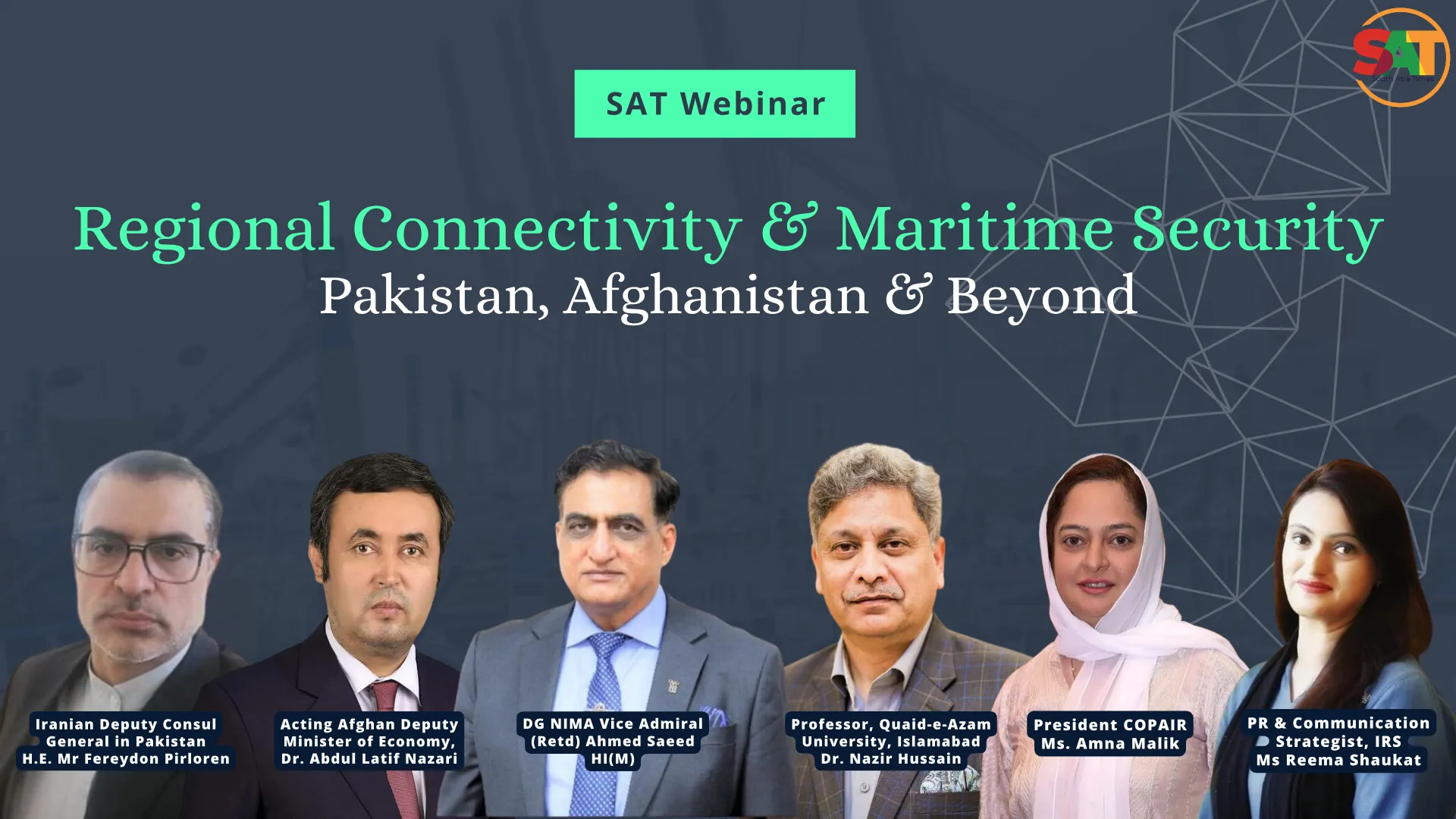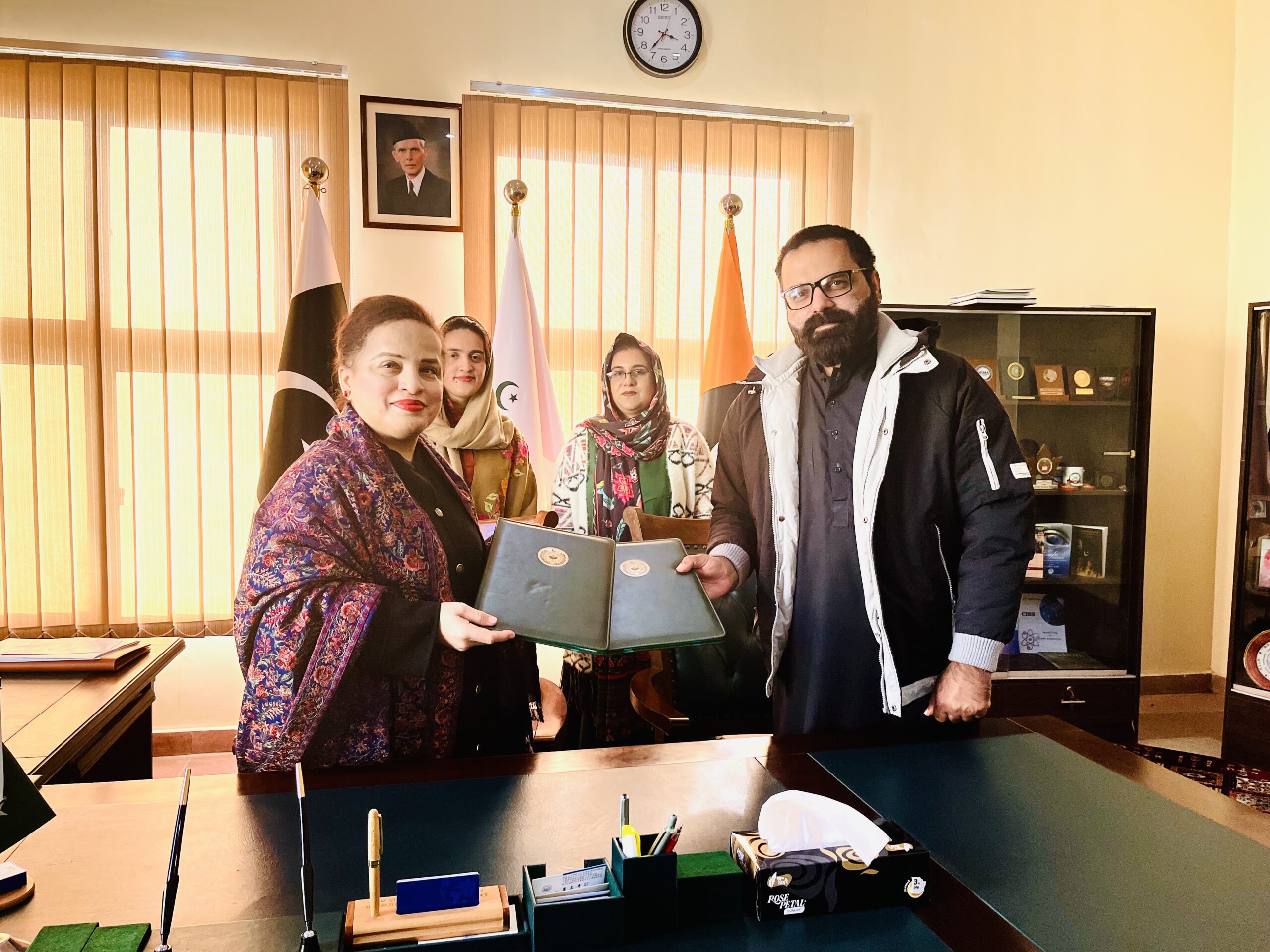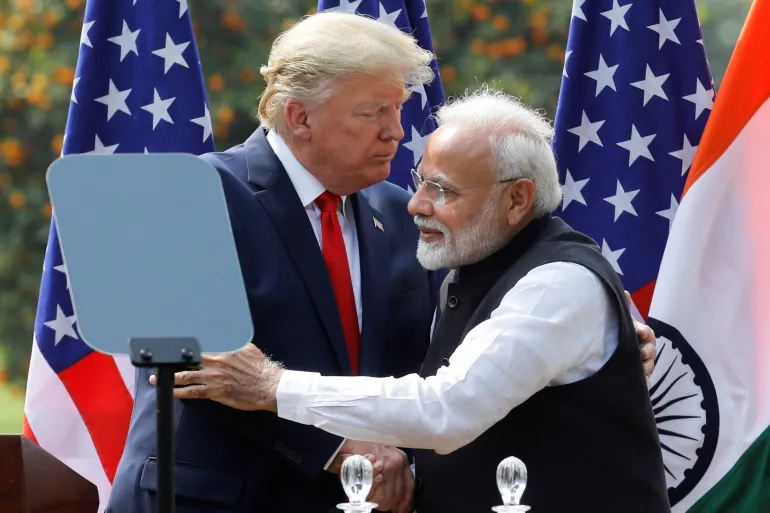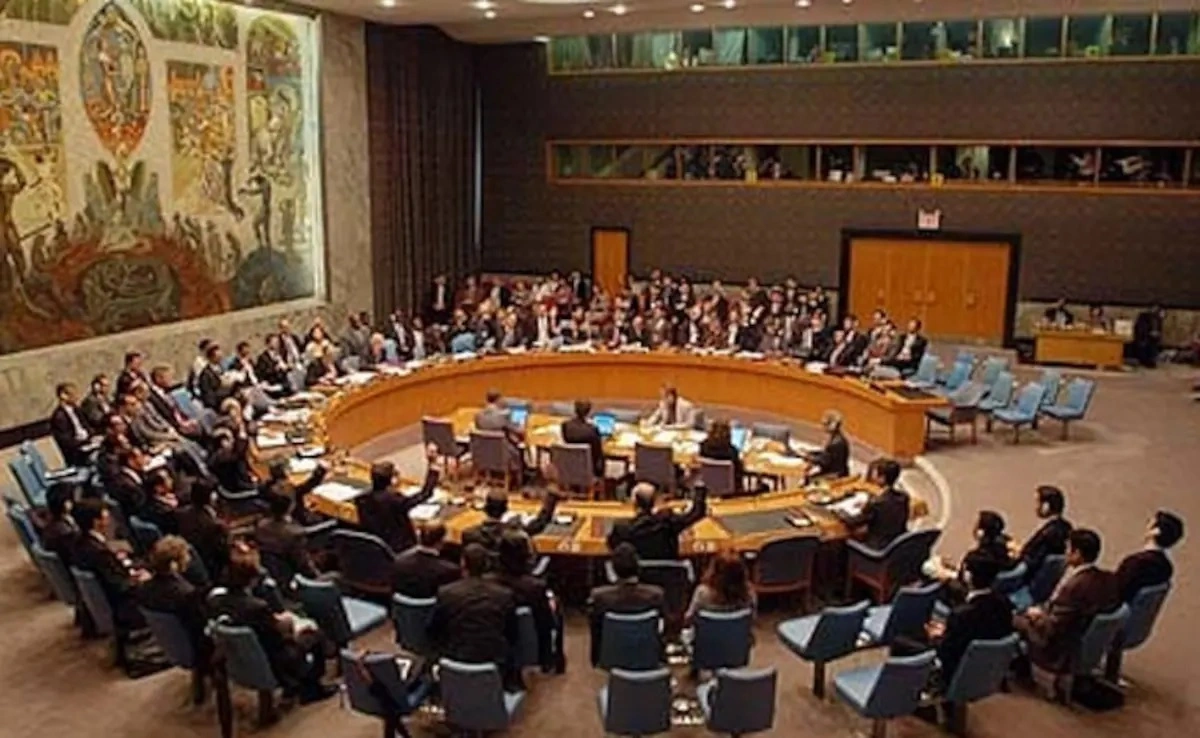South Asia Times (SAT) hosted its debut webinar to discuss the themes of regional connectivity and maritime security that have far-reaching implications for South Asia and beyond. Experts from Pakistan, Afghanistan and Iran participated in the discussion.
The webinar served as a robust platform for thought leaders to exchange insights, address challenges, and propose innovative solutions concerning regional connectivity and maritime security, with a focus on Pakistan and Afghanistan. Pakistan’s pivotal role in regional connectivity projects and the Maritime Silk Route, acting as a vital link for trade and energy flows, was a key highlight. Additionally, Afghanistan’s aspirations as a hub for regional trade were explored, emphasizing the potential for economic growth and stability through integration into these initiatives.
Distinguished panelists, including Dr. Abdul Latif Nazari, H.E. Mr. Fereydon Priloren, Dr. Nazir Hussain, and Ms. Amna Malik, enriched the discussions with their expertise and diverse perspectives. The keynote address by Vice Admiral (Retd) Ahmed Saeed delved into challenges, strategies, and shared prosperity in the realm of regional connectivity and maritime affairs.


![Prime Minister Narendra Modi with External Affairs Minister S. Jaishankar at an official event. [Photo Courtesy: Praveen Jain via The Print].](https://southasiatimes.org/wp-content/uploads/2026/02/20-scaled-e1755601883425-1024x576-1.webp)



